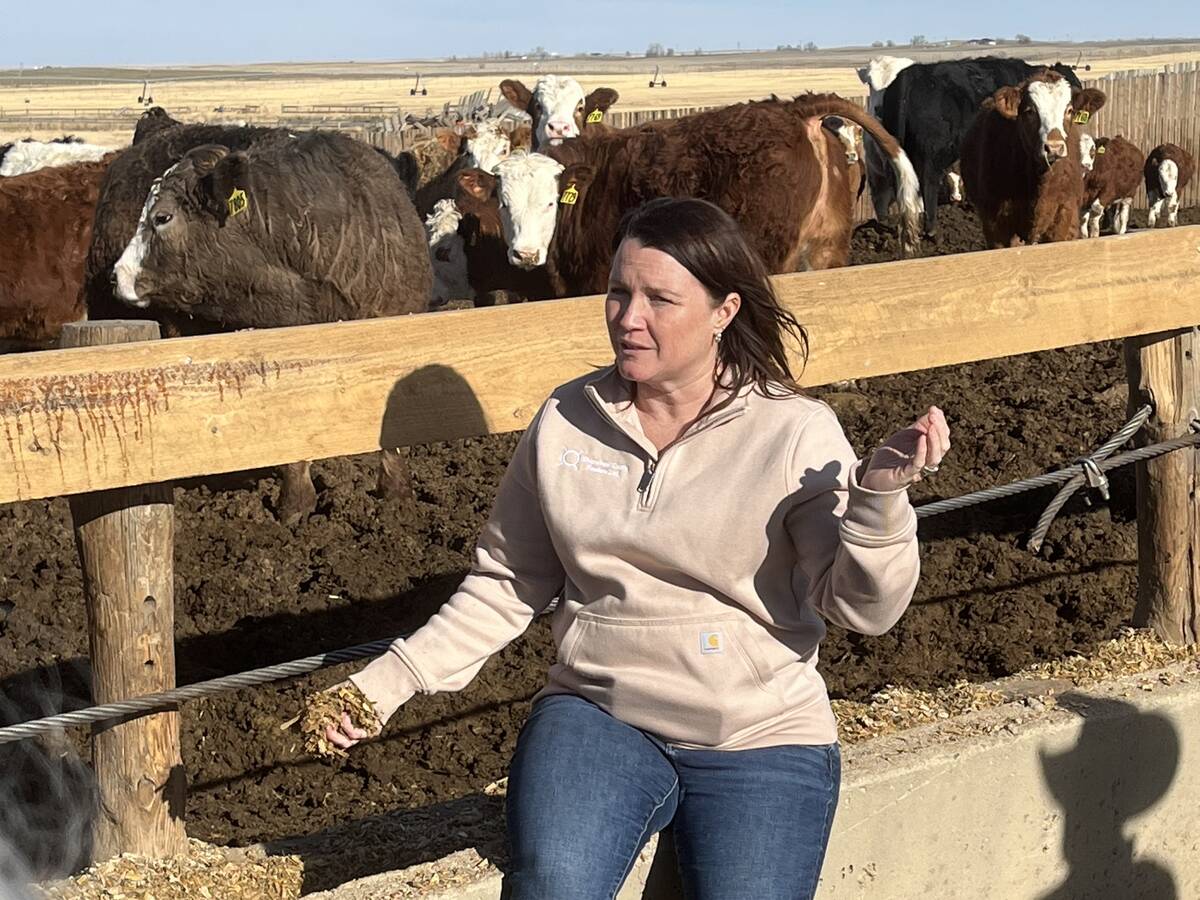Even after a tough year, the arrival of spring always seems to bring hope for a new season and optimism that this year will be better.
But after several tough years — a global pandemic, drought in some regions and flooding in others, feed shortages, rising input costs, supply chain issues, and now war in Ukraine — farmers are finding their well of eternal optimism starting to run dry.
“We had a hard year last year,” said Megz Reynolds, executive director of the Do More Ag Foundation. “Coming out of the pandemic, you didn’t need to be in ag to be completely drained or to be feeling all the mental health effects that came with the pandemic.
Read Also

Roots of Resilience: The 50-year evolution of Shipwheel Cattle Feeders
Alberta’s Shipwheel Cattle Feeders is one of Canada’s pioneers in holistic regenerative agricultural practices.
“And then Russia invaded Ukraine, and we all watched the effect that, that had on fertilizer and fuel prices and the availability of those two items that are so crucial to planting and seeding.
“I’d say there’s a lot of anxiety and uncertainty across agriculture as a whole, but especially in Canada, right now.”
That isn’t unusual.
In a 2021 survey of farmer mental health in Canada, 76 per cent of farmers said they were experiencing moderate or high stress, she said.
“So many of us in the industry are living and functioning with chronic stress, so even when we feel like there’s nothing going on, there’s a very real chance that there is.”
As a result, it can be hard for farmers to recognize the toll that stress is taking as they try to push through it and tough it out.
“Farmers are eternal optimists — they have to be,” she said. “There are so many factors that are out of your control at any given time that if you can’t be optimistic, you can’t exist in the industry.”
But that eternal optimism is one of the things that often prevents farmers from asking for help when they’re struggling with their mental health.
“It doesn’t just prevent them from asking for help. It prevents them from even entertaining the possibility that there’s something going on and that they might need help,” said Reynolds.
“When something devastating happens — like the drought — instead of talking about that and what we’re suffering through, we just say, ‘Well, there’s always next year.’ We just try to move on, and we don’t take time to experience what we’ve just gone through.”
A big part of that is a deep-seated reluctance when it comes to seeking help.
“External stigma is the fear that our neighbour is going to think we’re less of a farmer if we’re seeing a therapist or going to counselling,” she said. “That’s the external stigma piece, and that can keep somebody from reaching out and getting the support they need.”

But internal stigma is, as far as Reynolds is concerned, the biggest mental health challenge within the agriculture industry right now.
“We’re finally talking about mental health, but there are still so many people who are quick to say, ‘It’s great that we’re talking about mental health and I fully support people getting help, but I would never need help myself. I would never reach out to anybody,’” she said.
“When you’re fighting that internal stigma, you’re not in a place where you’re able to even accept that there’s something going on that you need help with, be that depression, anxiety, addiction. That’s one of the biggest barriers that I see in our industry.”
And oftentimes, producers don’t know how to recognize the signs that they need help with their mental health. Changes to your sleeping or eating patterns, trouble focusing or finding motivation, being impatient or quick to anger, using alcohol or other drugs to cope, and other changes in your personality are all signs that your mental health may be suffering.
“It’s really easy to overlook all of these things, especially in agriculture,” said Reynolds. “We’re so used to running on little sleep during the busy season, eating too little when we’re on the go, or being short tempered because we’re stressed about the weather.
“In agriculture, we’re so used to living at this level of chronic stress that we’ve normalized all of these things. We don’t even realize that they’re going on.”
So how can producers ask for help with a problem they don’t even know they have?
Start small and start simple, said Reynolds.
“It’s really important to break reaching out for help into pieces that feel manageable for you at that moment,” she said.
“It might just start with calling a loved one or a friend and having a conversation where you talk about being worried about what this year will look like or the effects of last year’s drought — just opening the door to start talking about some of those things and how they affect you.”
Crisis phone lines exist, but there are also lines producers can call just to get support.
“You shouldn’t ever feel like you have to be in complete crisis mode before you call them.”
There are also one-on-one supports that can help, including talking to a mental health professional.
“One of the things that I love that’s come out of COVID is that there are more online therapy apps than existed beforehand, and that makes talking to a professional really easy,” she said. “You can even do it in the cab of your tractor during seeding.”
Reaching out for professional help will also give you the skills and coping mechanisms you need to be “better prepared when something does happen in the future.”
“No one ever taught us healthy coping mechanisms. We didn’t learn it in school. Our parents didn’t talk about it. We don’t talk about it as an industry,” said Reynolds.
“Right now, the common coping mechanisms used in agriculture are sleeping more, avoiding others, eating more or less, self-blame, and drinking alcohol. Those are what we have in our tool belt right now, and that’s why connecting with a mental health professional is so important so that we can replace those unhealthy coping mechanisms with healthy coping mechanisms.”
For more information or to access mental health resources, visit domore.ag.














